- Home
- Alice Hoffman
Fortune's Daughter Page 3
Fortune's Daughter Read online
Page 3
“You can ask me anything,” Lila Grey, the psychic said. “Just don’t ask me when the heat wave will break because I don’t do weather.”
The fortune-teller in Boston certainly hadn’t asked them for questions; she had taken one look and had quickly decided what they wanted to hear.
“I’ll bet everybody just pours out their whole life story to you,” Rae guessed.
“Not really,” Lila Grey said.
“I’ll bet once they start talking about themselves, they can’t stop,” Rae insisted.
Lila Grey, who had three more tables to go, a dentist appointment in the late afternoon, and a stop at the market before she went home, was not as careful as she might have been. She might have at least looked at her client, but instead she glanced down at her watch. While she thought about having dinner with her husband that evening, out on the patio where it was cooler, Rae just couldn’t seem to stop talking.
“You know, maybe they’ve got a boyfriend, and they don’t know if he’s really in love with them …”
Lila Grey cut her off. “Is that your question?” she asked.
Rae leaned her head against the booth and considered. “I guess it is,” she said finally.
“If you don’t drink your tea, we’ll never know the answer, will we?” the psychic suggested.
As Rae gulped the lukewarm tea, Lila Grey finally took the time to look at her. The booth suddenly seemed uncomfortable, if only because there was now the odor of some strong perfume that was a little too sweet. When she had drained the cup, Rae offered it to the psychic. Lila Grey knew that something was wrong as soon as she touched the handle. She couldn’t even bring herself to lift the cup. Already the tea leaves had begun to settle, and Lila was certain that if she hesitated, even for an instant, she would soon see the outline of the darkest symbol you can find at the bottom of a cup. She pushed the teacup away, then quickly reached for a saucer which she placed over its mouth.
Rae leaned forward. “What is it?” she said.
Lila had always been able to identify the women she had to avoid. The first time the symbol had appeared during a reading she’d taken it as a warning; the second time she’d been tricked by the absence of a wedding band on her client’s left hand and by the dim light in her own living room. She shoved the teacup even farther away, and each one of her silver bracelets slipped down to her wrist. The effect was a sound like a wind chime, one you hear from a very great distance when you’re in the center of the desert and are out of everything: water and hope and luck.
Rae’s throat was dry. “It’s something awful, isn’t it?” she whispered.
Lila didn’t answer. And after all, what was this woman’s unhappiness to her; she had seen misery before, and she’d reworked it, turning bad luck into whatever fortune her client wanted to hear. But this was a fortune no one deserved.
Lila knew enough not to look at Rae. She concentrated and closed her eyes. A wall of blue ice sprang up around her, it was hard as diamonds, impossible to penetrate. Lila was still there in the booth at the restaurant, but she was moving farther and farther away from Rae. She had thought she’d lost the ability to escape, but all Lila had to do was imagine that she was a crow. Her wings were so black they looked wet; beneath her the earth was a small blue globe. Her feathers were unfolding, one by one; and the air was as thin and cold and as pure as glass.
“Please, tell me what you see,” Rae called to Lila, but her voice was tiny, as if she was standing at the edge of the planet calling up into the limitless sky.
“Even if it’s horrible, I don’t care. I want to know,” Rae called.
Her words were pieces of crystal, and Lila was too far away to be pulled back down. To her, gravity was nothing. She could feel the moonlight on her feathers, that cold, white light. It was so beautiful and lonely; it was impossible to be touched by another soul. And with the compassion of one so very far away, Lila looked back down at Rae; she knew the mercy in not telling more than the smallest shred of truth.
“It’s nothing so horrible,” Lila Grey said. “It’s just that I see you won’t be able to sleep tonight.”
That night, Jessup didn’t come home. Rae tried to tell herself that the studio had forced him to work overtime, but she knew no one could force Jessup into anything, and they certainly couldn’t stop him from making one phone call. If early in the evening Rae suspected Jessup might be cheating on her, by midnight it no longer mattered. She’d forgive anything, as long as he came home.
Turning on the radio just made things worse. People in Hollywood were warned to keep their windows closed at night if they didn’t have screens. A band of wild dogs gone crazy with thirst roamed the boulevards; they had begun to push open back doors and circle houses. On Sweetzer Avenue, in a backyard where birds of paradise grew, the dogs had attacked a six-year-old boy in a fight for his wading pool. By the time the police had arrived the boy’s neck was broken. They had managed to shoot a collie, and when an autopsy was performed the oddest things were found in its stomach: a silk scarf; small bones, which had not yet been identified; blue water the color of sapphires; three gold rings.
At two in the morning, Rae was certain she heard the dogs outside her window. The trash cans rattled and fell, and something that sounded like claws hit against the cement walkway. Rae double-locked her windows, and she huddled in an armchair where Jessup usually sat to watch her undress for bed. Tonight, Rae didn’t take off her clothes, because she could tell already, long before she watched the sky grow light, that the psychic had been right.
At seven the next morning Rae made a pot of coffee, and as she poured herself a cup she noticed that her hand shook. She went back to the armchair and waited, and at seven forty-five she finally got what she was waiting for. The telephone rang, and she picked up the receiver before the first ring was through. But after she answered, Rae found she couldn’t speak; staying awake all night had robbed her of her voice.
“Rae, are you there?” she heard Jessup say.
She could tell from the metallic sound of his voice that he was calling from a phone booth. At the very least, he wasn’t in another woman’s bedroom.
“Are you going to speak to me, or what?” Jessup asked.
“I’ll speak to you,” Rae agreed, and she was amazed by how calm she sounded.
Whenever he hurt her, Jessup acted like he was the one who’d been wronged.
“I didn’t come home last night,” Jessup said now. “If you bothered to notice.”
“Oh, I noticed, all right,” Rae said.
Usually, not pressuring Jessup was the right thing to do—but now it backfired, and by the time Rae’s voice traveled to the broiling metal phone booth where Jessup was standing, the cool flatness of her tone infuriated him. He decided it was his right to be cruel.
“I’ll give you a hint as to where I am,” he said. “I’m in the desert.”
She knew he expected her to question him.
“Do you mind telling me in what state?”
“California,” Jessup said. “Outside Barstow. You think it’s hot where you are.”
“Do you mind telling me with who?”
“With who what?” Jessup said. He was enjoying this, she could tell.
“Who are you with?” Rae said.
“Maybe I just wanted to see the desert,” Jessup said. “Maybe I wanted to be by myself.”
Jessup let her sit there in agony for a moment, and then he told her the truth—he was out with a location company that had needed a driver at the last minute. He actually seemed to think this announcement warranted congratulations.
“That’s the reason you didn’t come home?” Rae asked.
“Every jerk in the world is making a movie, and I’m driving them around,” Jessup said. “Do you think that’s fair?”
Rae found herself wondering if it was the coffee that now made her feel so sick.
“Rae?” Jessup said. “Are you still there?”
That was when she knew.
“You’re not coming home,” Rae said, “are you?”
“The shooting schedule is eight weeks, and I think that’s enough time for me to set up my own deal with the producer. I don’t see why I couldn’t direct.”
“Tell me right now, Jessup,” Rae said. “Are you coming home or not?”
“Well, sure I am,” Jessup said. “Eventually.”
The future was so close Rae could feel it; it hung from the white stucco ceiling, and draped itself across the furniture.
“How can you do this to me?” she asked.
“Wait a minute,” Jessup said. “Don’t start pulling this guilt shit on me. Maybe I want to be somebody, Rae—this is a chance for me.”
“Oh, really?” Rae said. “What about me?”
“What about you?” Jessup said, surprised.
She hung up on him. Even after she turned on the cold water in the shower and stood under the spray, Rae could still hear the crash of the phone receiver hitting against its cradle. She stayed in the shower until she was shivering, but after she turned off the water, she felt too exhausted to move. She sat down in the tub and cried. It wasn’t so much that Jessup had left her, it was that after seven years together, Rae felt as if she had never had him in the first place. Outside, the bamboo that grew near the apartment building swayed in the hot wind; when the stalks rubbed together you could swear you heard singing. How could it be that Jessup now seemed like nothing more than a stranger who had telephoned from the desert? Unless he was someone she had dreamed up, and in that case Rae had been sleepwalking for seven years. And she could sit in that empty bathtub from today until tomorrow, and that still didn’t change the fact that only the most dangerous of men would go off and leave you in Los Angeles, to wake up alone.
Outside the front door of a bungalow on Three Sisters Street was a white arbor where roses bloomed all year long. It certainly wasn’t Lila Grey who took care of them; it was all she could do to remember to water the potted geraniums out on the patio. Her husband, Richard, was the one who took care of the yard, and the truth was, he didn’t have much luck. The lemon tree out back was crooked, ivy crept into the windows, the hibiscus dropped its salmon-colored flowers on the walkway.
The entire block seemed ill-fated; once it had been an estate belonging to three young women, a gift from one of the early directors to his sisters. But the gift had not been enough for them; they’d withered there, grown old and sick, and finally they’d refused to leave their house. When the block was sold at auction in the thirties, the grounds were so overgrown that bulldozers had been brought in, leveling everything. Bungalows were built, and as the neighborhood slipped—more crime and more roofs that needed patching—the one thing that remained constant was that it was nearly impossible to grow anything on Three Sisters Street.
But Lila’s husband was a BMW mechanic, and he insisted that plants had to be simpler than a German-made car. He refused to give up. During the heat wave, when the city allowed hoses to be turned on for only an hour each day, Richard became a maniac for water. He scooped out bathwater and soapy dishwater with a metal pail and rationed a little for each of the trees. He joked that working with plants was a part of his heritage—his father was a Shinnecock Indian who had long ago been a migrant worker, his mother a Russian Jew who could never keep a begonia alive on her window sill. When Richard was nine, his parents bought a gas station on the North Fork of Long Island, and Lila knew that the only things that had ever grown there were wildflowers and weeds.
Sometimes, when Richard was out mowing the grass, Lila could look out the window and actually see the grass turning brown beneath the blades. She had the urge to run outside and beg him to give up: they could brick over the lawn, extend the slate patio, chop down the twisted trees and use them for firewood on rainy winter nights. But Lila forced herself to keep quiet, and when she went outside it was only to take Richard a glass of lemonade. If he wanted to believe he could turn the lawn green and force strawberries to appear on the few spindly plants, who was she to tell him he was wrong? But anyone could see that the only thing that would ever grow in their garden were the huge scarlet roses, and they seemed not to need any care at all, not even water—in the neighborhood it was rumored that the roses had once grown by the Sisters’ front door, that they were the last remnants of the hundreds that had once been on the estate.
Lila held with the idea of letting people believe whatever they wanted, no matter how foolish. Her husband believed at least a dozen false things about her, and that was just the way Lila wanted it. Just as Richard imagined himself to be the first man she had ever loved, he believed his wife to be psychic. If he came home early and found Lila giving a private reading in the living room—the lamps turned down, the red silk cloth spread out on the table—he tiptoed down the hallway. Lila didn’t see any point in explaining that her readings depended less on the arrangement of a little water and Darjeeling than they did on the dark circles under a client’s eyes, or the way some people twisted their wedding bands on their fingers, as though the gold irritated their skin. Those moments when she felt some sort of strange, pure knowledge she credited to intuition, no more and no less than anyone else might have. Privately, she felt her clients’ preoccupation with the future was foolish, a sport for schoolgirls and lonely women. But the past, that was another matter. The past could press down on you until every bit of air was forced out of your lungs; if you weren’t careful, it could swallow you up entirely, leaving nothing but a few fragile bones, a silver bracelet, ten moon-shaped fingernails.
Lately, Lila couldn’t look in a mirror without seeing a young girl whose hair was so thick she had to brush it twice a day with a wire brush made in France. When she stood at the sink washing dishes, she could feel herself falling, pulled backward into a well so deep it might be impossible to ever climb back out once you let go. It was pure luck that Richard had managed to pull her back each time. He’d simply be looking for a magazine or a pair of pliers, he’d decide to have a piece of pie and slam the refrigerator door. That was all it took—his presence would bring Lila back and there she’d be, safe in her own kitchen.
But at night she was too far away for Richard to reach her, and Lila found herself dreaming about the apartment in New York where she’d grown up. It was a place where there were heavy drapes on all the windows, and at night the steam heat made a peculiar crying sound that quickened your heart. Lila was eighteen and still living at home. In the mornings she attended an acting class held in a deserted theater on the Lower East Side, but when her parents had had enough—talk of Broadway and Hollywood until they were dizzy—they insisted she find a job. Lila became a waitress at a restaurant on Third Avenue, and it was there, in the late afternoons, that an old woman named Hannie read fortunes in exchange for fifty cents. The cooks in the kitchen were afraid to tell Hannie to leave—they told each other that she wore long, black dresses to hide the fact that underneath she had chicken’s legs. Instead of knees she had knobby yellow flesh, around her ankles there were white feathers. Her eyes, the waitresses all agreed, could put you under a spell and before you knew it you’d be barking like a dog.
Whenever Lila brought over the pots of hot water and raisin buns Hannie ordered, she made certain never to look the old lady in the eye. Lila couldn’t help but notice that for every one in the restaurant who feared Hannie, there was a client who thought the world of her. In June so many girls about to become brides wanted to hear their fortunes that a line formed outside the restaurant on Third Avenue. Nearly all of her clients were women, and each had a slightly dazed look on her face as Hannie opened the purple tin in which she carried her tea. There were times when everyone in the restaurant had to work hard to ignore the weeping that came from that rear table, and on days when a bad fortune was read, everyone in the restaurant grew moody, and to cheer themselves the waitresses munched on chocolate bars, and butter crumb cakes, and figs.
Lila found herself drawn to the old fortune-teller. Each time
she took a break, she wound up at a table in the rear of the restaurant, and as she drank a Coke with lemon and ice, she listened in to the tea-leaf readings. It was oddly thrilling to face in the other direction and still hear a tale of heartbreak or hope right behind your back. But though she could hear each client’s complaints quite clearly, Lila could never make out Hannie’s advice. The words were all garbled, too private and low; and Lila found herself moving closer and closer to the fortune-teller’s table, until one day Lila realized that it wasn’t the wall her elbow was resting on, but Hannie’s bony spine. Lila moved away in terror, convinced that before the night was through she’d be howling at the moon. But the old woman smiled at her, then motioned for her to come to her table, and Lila could hardly refuse.
“As long as you’re eavesdropping,” Hannie said when Lila had sat down across from her, “you might as well sit here and learn something.”
From that day on, Lila sat with the old fortune-teller whenever she could, and she no longer had to strain to hear Hannie’s advice. Every time a new symbol appeared in a teacup during a reading, Hannie jabbed Lila’s arm with her finger. On the back of a menu Hannie listed the most important signs: A flock of birds was always sorrow. The flat line of a horizon meant travel. A four-pointed star was a man who would betray you, and a five-pointed star was a man who was true.
Lila began to practice her new skill on her family and friends. She had a natural talent for guessing what was wrong with someone’s life, and in no time she had a following. Some of her mother’s friends slipped her a dollar for good luck when she read for them; the other girls who took classes at the theater brought in Thermoses of hot water and tins of loose tea and they offered Lila earrings and hair clips in return for their future. In the restaurant there were some clients who began to prefer Lila’s readings to Hannie’s, and they sat patiently, ordering cheese danish or mushroom soup, until Lila could take her break. But even after several months, whenever Lila looked into a client’s cup she saw only murky tea leaves, never the future. She began to feel that each time she gave a reading she was committing a robbery. No matter how hard she tried, she couldn’t see into the future, and when she asked Hannie why this was, the old woman made a sound in the back of her throat that startled Lila, for it sounded exactly like a chicken clucking.

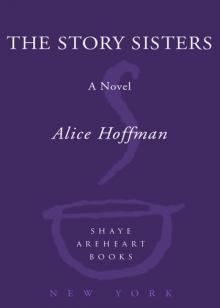 The Story Sisters
The Story Sisters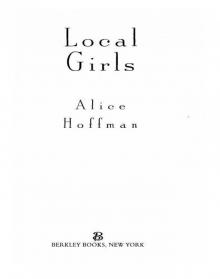 Local Girls
Local Girls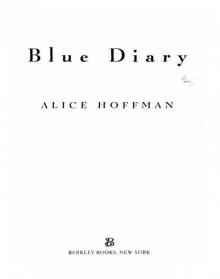 Blue Diary
Blue Diary The River King
The River King Here on Earth
Here on Earth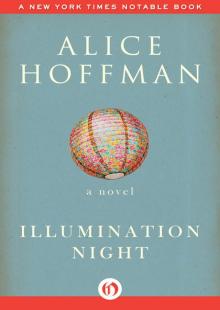 Illumination Night: A Novel
Illumination Night: A Novel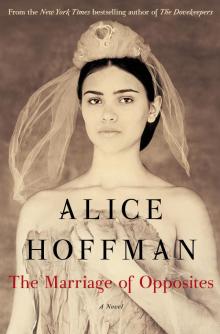 The Marriage of Opposites
The Marriage of Opposites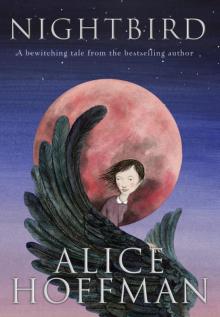 Nightbird
Nightbird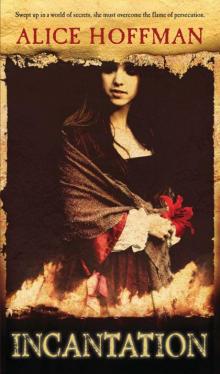 Incantation
Incantation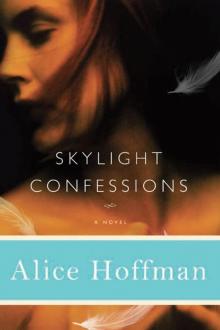 Skylight Confessions
Skylight Confessions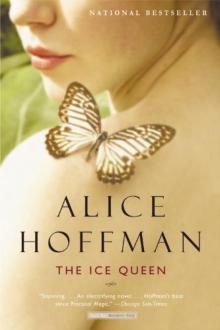 The Ice Queen
The Ice Queen Second Nature
Second Nature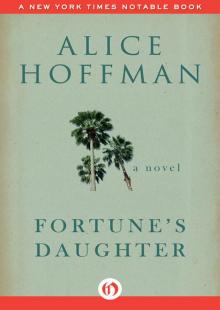 Fortune's Daughter: A Novel
Fortune's Daughter: A Novel Seventh Heaven
Seventh Heaven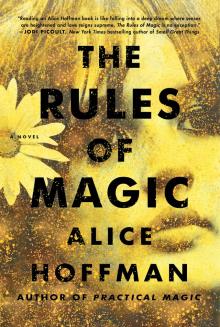 The Rules of Magic
The Rules of Magic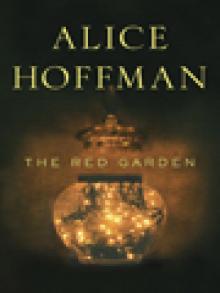 The Red Garden
The Red Garden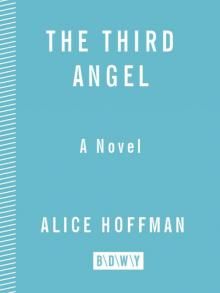 The Third Angel
The Third Angel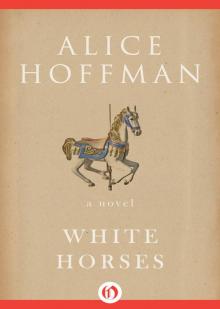 White Horses
White Horses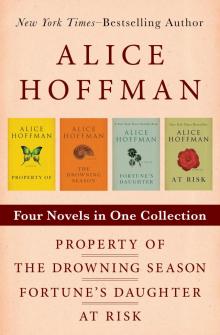 Property of / the Drowning Season / Fortune's Daughter / at Risk
Property of / the Drowning Season / Fortune's Daughter / at Risk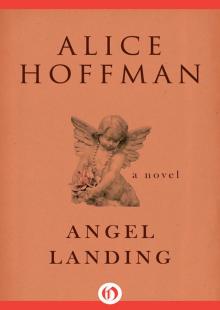 Angel Landing
Angel Landing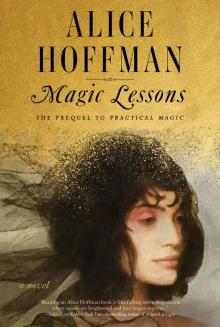 Magic Lessons
Magic Lessons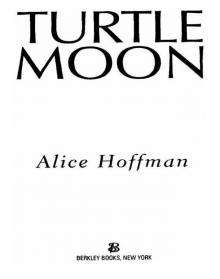 Turtle Moon
Turtle Moon Aquamarine
Aquamarine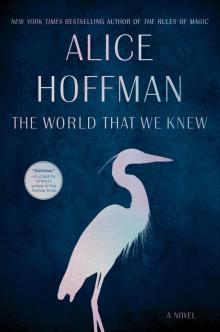 The World That We Knew
The World That We Knew Faithful
Faithful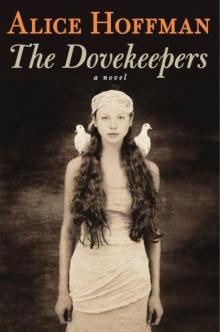 The Dovekeepers
The Dovekeepers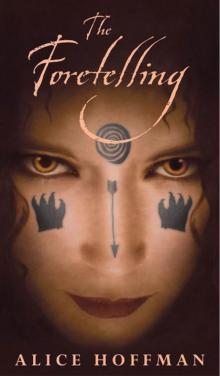 The Foretelling
The Foretelling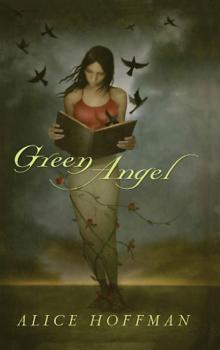 Green Angel
Green Angel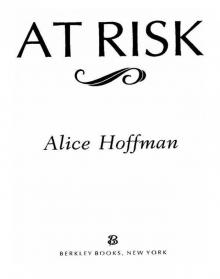 At Risk
At Risk Green Heart
Green Heart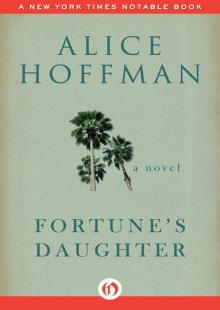 Fortune's Daughter
Fortune's Daughter Faerie Knitting
Faerie Knitting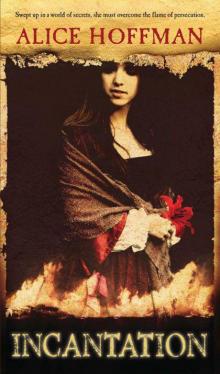 Incantation (v5)
Incantation (v5)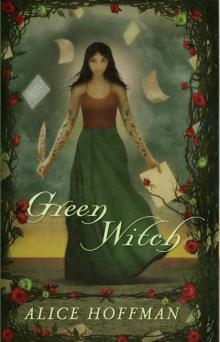 Green Witch
Green Witch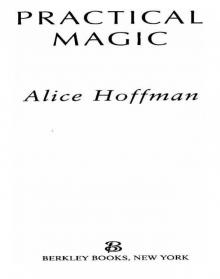 Practical Magic
Practical Magic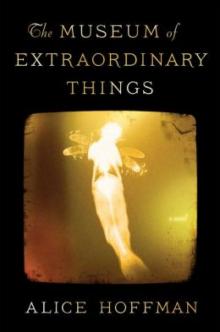 The Museum of Extraordinary Things
The Museum of Extraordinary Things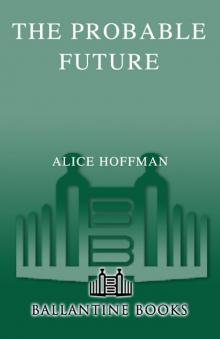 The Probable Future
The Probable Future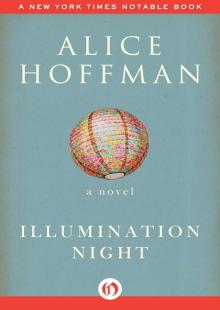 Illumination Night
Illumination Night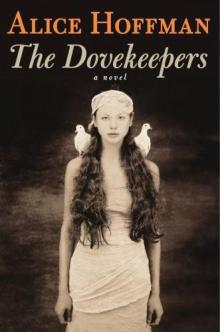 The Dovekeepers: A Novel
The Dovekeepers: A Novel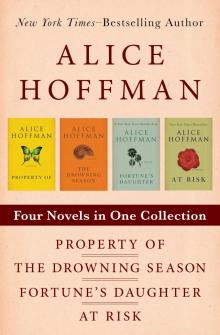 Property Of, the Drowning Season, Fortune's Daughter, and At Risk
Property Of, the Drowning Season, Fortune's Daughter, and At Risk